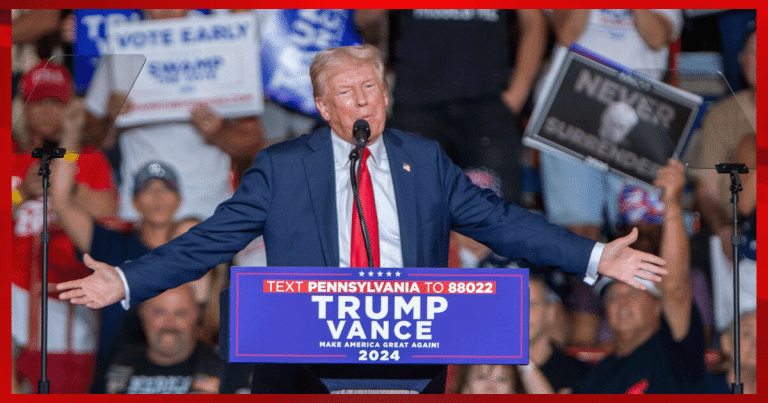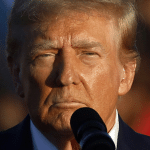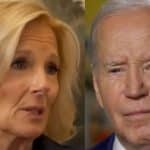
When Donald Trump took office in 2017, he set out to revitalize the American economy, putting an “America First” agenda front and center. The results? Businesses thrived, workers saw rising wages, and major industries enjoyed a revival not seen in decades. Trump’s policies, including tax cuts and deregulation, unleashed the entrepreneurial spirit of countless American companies.
Meanwhile, his aggressive stance on trade, particularly against unfair foreign competition, shielded companies like manufacturers from being gutted by cheap imports. For the first time in years, blue-collar workers felt like someone in Washington had their backs.
Now, as we approach another pivotal election, people are looking back at the Trump years with a sense of nostalgia. For many, it wasn’t just a presidency—it was a chance for American industries to rebound after decades of decline.
And it’s not just everyday folks reminiscing about better times. One major industry is speaking up, loud and clear, about the Trump effect. The steelworkers in Pittsburgh have something to say—and it’s making waves.
From Daily Caller:
Steelworkers from the Pittsburgh area who attended a Saturday rally for former President Donald Trump credited his steel tariffs for “saving” their jobs during a Monday morning Fox News appearance…“I was glad I got my members up there and they got to see him,” Pavlack said. “It’s like, all about my members to me, you know, meet Mr. Trump. Mr. Trump kind of saved all of our jobs with those tariffs.”
Steelworkers Rally Behind Trump: “He Saved Our Jobs”
At a rally in Latrobe, Pennsylvania, over the weekend, steelworkers from the Pittsburgh area made it clear just how much they credit Donald Trump for their livelihoods. Appearing on Fox and Friends Monday morning, union members spoke openly about how Trump’s 2018 steel tariffs weren’t just a political move—they were a lifeline.
Brian Pavlack, one of the steelworkers in attendance, had no qualms about giving Trump the credit he feels is due. “Mr. Trump kind of saved all of our jobs with those tariffs,” he said, adding that his union members were grateful for the opportunity to see Trump in person.
Let’s rewind to 2018. The steel and aluminum tariffs Trump enacted were meant to level the playing field, especially against China, which had been flooding the market with cheap steel. The strategy worked, according to these workers. It wasn’t just about protecting American jobs; it was about ensuring that industries like steel remained viable in the U.S., providing opportunities for future generations.
Glenn Thomas, another worker who spoke on the show, echoed this sentiment, saying, “I firmly believe he saved the steel industry, not only in our country but in Mon Valley, where many of us have lived for close to 30 years.”
For these men and women, who are often third-generation steelworkers, Trump’s policies weren’t just headlines—they were personal. The threat of mill closures in the 1980s was still fresh in their minds. Andy Macey, another attendee, recalled watching multiple mills in the Mon Valley shut down during that time.
But this time, thanks to Trump’s efforts, they saw a different outcome. “I don’t want to see those mills shut down,” Macey said. “He made a firm commitment… through that handshake… that he says, ‘I will do that.’”
Trump’s Union Appeal: A Changing Tide?
What’s fascinating about this is that union workers, historically Democratic voters, are now swinging toward Trump. Traditionally, industries like steel have been solid blue when it comes to elections. But not anymore.
The International Association of Fire Fighters (IAFF), which endorsed Biden in 2020, recently announced that it wouldn’t be endorsing anyone in the upcoming 2024 election. The International Brotherhood of Teamsters made a similar move. These unions are pulling back, reflecting the dissatisfaction many rank-and-file workers feel toward the current administration.
Steelworkers who once voted Democrat are now openly supporting Trump because they see the results of his policies in their paychecks and job security. Thomas explained how the steel industry’s struggle against illegal Chinese dumping of steel was turned around by Trump’s tariffs.
The workers know what Trump did for them, and they’re not interested in empty political promises—they want results. Macey summed it up perfectly when he said, “It was one of the first things he did when he got into the presidency… the tariffs worked.”
This kind of sentiment can’t be ignored. With unions either staying silent or breaking from their traditional political alliances, Trump is making a serious play for the blue-collar vote. And it’s not just the steelworkers.
If other industries begin to feel the same way, this could spell big trouble for Biden in states like Pennsylvania, where every vote counts.
The Bottom Line: What Does This Mean for 2024?
As the election approaches, Trump’s impact on industries like steel is impossible to overlook. The message from workers is clear: Trump’s America-first policies saved their jobs, and they’re willing to back him again.
While Biden tries to rally his base, union workers are starting to remember the good times under Trump and realizing that maybe, just maybe, he’s the one who’s looking out for them.
Key Takeaways:
- Trump’s steel tariffs in 2018 are credited with saving thousands of American jobs, particularly in the Mon Valley, Pennsylvania.
- Union workers, historically Democratic voters, are now swinging toward Trump as they see the tangible benefits of his policies.
- With unions like the IAFF and Teamsters refusing to endorse a candidate in 2024, Trump has a serious opportunity to win over blue-collar voters.
Source: Daily Caller


